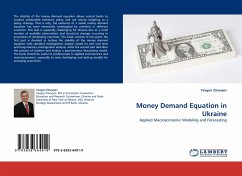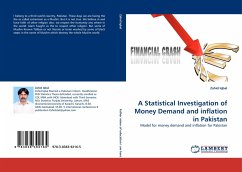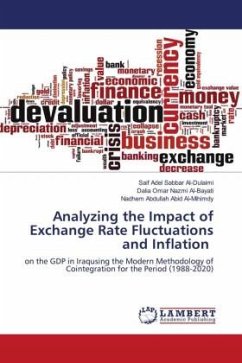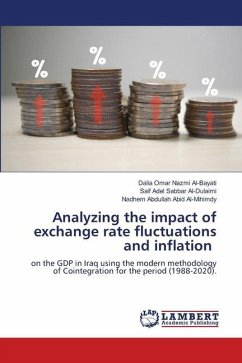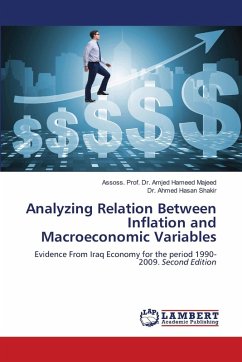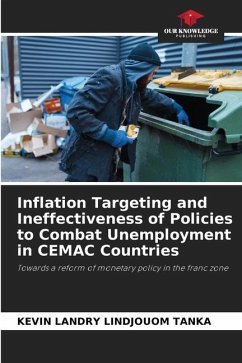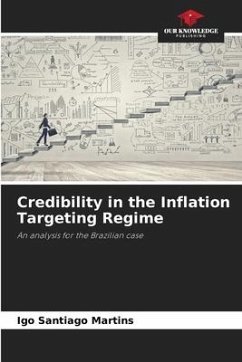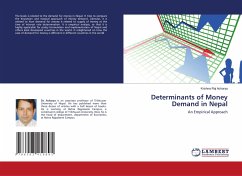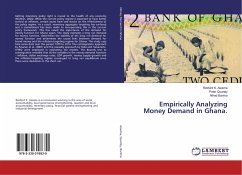
Empirically Analyzing Money Demand in Ghana.
Versandkostenfrei!
Versandfertig in 6-10 Tagen
37,99 €
inkl. MwSt.

PAYBACK Punkte
19 °P sammeln!
Getting monetary policy right is crucial to the health of any economy (Mishkin, 2004). While the current policy regime is expected to have better control at inflation, certain issues have cast doubt on the effectiveness of the policy regime. As a result, monetary aggregate targeting has surfaced and a commitment has been made to incorporating this in the current policy framework. This has raised the importance of the demand for money function for Ghana again. The study estimates a long run demand for money function, determines the stability of the long run demand for money function and determi...
Getting monetary policy right is crucial to the health of any economy (Mishkin, 2004). While the current policy regime is expected to have better control at inflation, certain issues have cast doubt on the effectiveness of the policy regime. As a result, monetary aggregate targeting has surfaced and a commitment has been made to incorporating this in the current policy framework. This has raised the importance of the demand for money function for Ghana again. The study estimates a long run demand for money function, determines the stability of the long run demand for money function and determines the causal links between demand for broad money and the inflation-targeting regime for Ghana. The study uses time series data over the period 1979 to 2014. The cointegration approach by Pesaran et al. (2001) and the causality approach by Toda and Yamamoto (1995) were employed in estimating the models. The Bounds test to cointegration revealed that all the variables in the money demand function - inflation, dollar exchange rates, GDP growth, money supply growth and the inflation-targeting regime converged to long run equilibrium once there were deviations in the short run.




